Search Results
Showing results 81 to 100 of 130
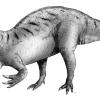
Sing - Suchomimus Was His Name
Source Institutions
In this activity (located on page 2 of PDF), learners sing together a song that gives details about the dinosaur species Suchomimus (pronounced “Sook-o-mime-us”).
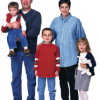
What is an Animal Group?
Source Institutions
In this activity related to dinosaurs, learners explore why animals live in families. Learners discuss and identify animals living in families or groups from images and photos.
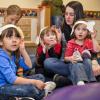
Horton Senses Something Small
Source Institutions
In this story time program, young learners listen to the Dr.
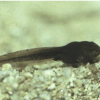
Life Story
Source Institutions
In this two-part activity, learners compare and contrast a variety of life cycles to better understand different organisms and how they develop.
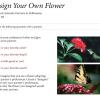
Design a Flower
Source Institutions
In this activity, learners learn about the adaptations that flowers have developed which support pollination. Learners also list their personal preferences (i.e.
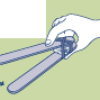
Eat Like a Bird
Source Institutions
Birds' beaks are designed to allow birds to get the most of whatever food they need. In this activity, learners get an idea of how different beak shapes suit different food sources.
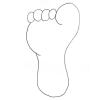
Measuring UP!
Source Institutions
In this math lesson, learners use inchworm measuring tools to measure the lengths of several objects in the room.
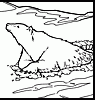
Arctic Story Puzzles
Source Institutions
This activity has three story puzzles learners can solve to learn about life in the Arctic.
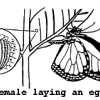
Rearing Monarchs
Source Institutions
As a long-term project, you can rear monarch butterflies at home or in a classroom.
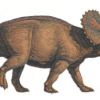
X-ray Dinosaurs
Source Institutions
In this activity, learners explore dinosaur fossils and skeletons. First, learners listen to "Tyrannosaurus Rex" by Daniel Cohen to learn about T. rex dinosaurs specifically.
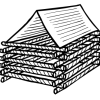
Three Little Pigs Construction Company
Source Institutions
In this activity about problem-solving, learners build a house for the Three Little Pigs using twenty straws and two index cards.
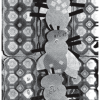
Bee Builders
Source Institutions
In this activity, learners make a model of a beehive using simple materials.
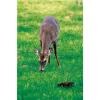
Who Eats What?
Source Institutions
This activity is on page 10 (continued on the right side of page 11) of the pdf, part of the Forest Animals Discovery Box. In this game, learners act out the food web.
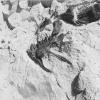
Fossil Dig Site
Source Institutions
In this activity (located on page 5 of PDF), learners work in groups to create dig sites for display.
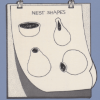
Bird Nests
Source Institutions
In this outdoor activity, learners build bird nests and place them in the activity area, then play the role of naturalists as they try to locate each other's nests.
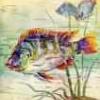
Is it a Fish?
Source Institutions
This activity is on page 8 of the pdf, part of the Sea Life Discovery Box. This is an activity exploring the characteristics of fish.
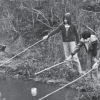
Attract a Fish
Source Institutions
This outdoor activity/field trip requires a place where minnows swim, such as a local pond or brook.
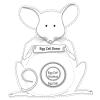
Let's Clone a Mouse, Mouse, Mouse...
Source Institutions
Somatic Cell Nuclear Transfer (SCNT) is a cloning method that involves transferring a nucleus from a somatic cell of the individual to be cloned to an enucleated egg.

Make a Dinosaur Model
Source Institutions
In this activity, learners explore dinosaur skeletons, anatomy, and locomotion. Learners compare and contrast dinosaur skeletons and drawings.
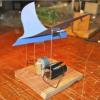
Motor Bird
Source Institutions
In this activity, learners build a bird that flies in place with help from a motor, wire, and some straws.
